Asiana legal fallout begins after deadly crash
Updated: 2013-07-20 00:26
By CHEN JIA (China Daily)
|
||||||||
A Chinese-American lawyer will set up a 50-man legal team to help the Chinese passengers who were involved in the Asiana plane crash with compensation claims.
Lawyer Daniel H. Deng said his team has come to San Francisco from their offices in Southern California several times since last weekend to investigate and collect data. Their next step is to continue investigations in China.
Asiana flight 214 crash-landed on July 6 at San Francisco International Airport with 307 passengers. Of the Chinese passengers, 141 have been accounted for, including three teenage girls who were killed in the accident and aftermath.
Mary Schiavo, who works at US law firm Motley Rice, told reporters that the foreign victims of the crash could process their compensation claims in the United States.
Schiavo, a former US Transportation Department inspector-general, was one of the litigators that represented families of passengers and crew killed in the terrorist attacks on Sept 11, 2001.
However, Brian J. Alexander, a partner at Kreindler & Kreindler LLP, said it's too early to determine where the cases will proceed.
"The facts concerning the causes of the crash and each individual's injuries, as well as any contributing factors, will determine where suits can be filed and who the potential responsible parties will be," he said.
He said case values could be different for foreign claimants.
"While the laws on damages vary between the three countries, there are many factors which may in the end impact the case values," he said. "As noted by the (National Transportation Safety Board), these cases usually have multiple factors and we will be looking at all possibilities."
Robert Hedrick, an attorney with Aviation Law Group in Seattle, told China Daily that Chinese passenger claims are subject to jurisdictional limitations contained in the Montreal Convention, an international treaty that defines provisions concerning compensation for victims of air disasters.
The factors for jurisdictional limitations are: where the airline is based; the country of final destination; the country where the ticket was purchased; and the country of the passenger's permanent residence.
"Chinese passengers and other non-US passengers will have a hard time holding jurisdiction in US courts against Asiana, unless their ticketed final destination was the US, or unless they somehow purchased their tickets here through an Asiana office located here," he said.
The Montreal Convention only applies to claims against the airline and not claims against other potential parties such as the aircraft, parts manufacturers, or air traffic controllers, he said.
Claims against third parties will find US courts' doors wide open for Chinese passengers, he said.
But he suggested Chinese passengers take time to focus on recovery.
"There is no need to rush to hire a lawyer today, tomorrow or next week," he said. "The Montreal Convention has a two-year statute of limitations to file a lawsuit."
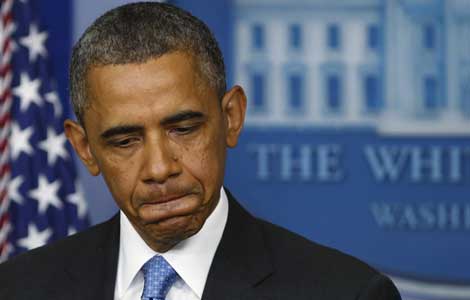
 'Trayvon Martin could have been me, 35 yrs ago': Obama
'Trayvon Martin could have been me, 35 yrs ago': Obama
 China launches three experimental satellites
China launches three experimental satellites
 Bruce Lee's daughter recalls his energy
Bruce Lee's daughter recalls his energy
 Giving take-out roast chicken a French twist
Giving take-out roast chicken a French twist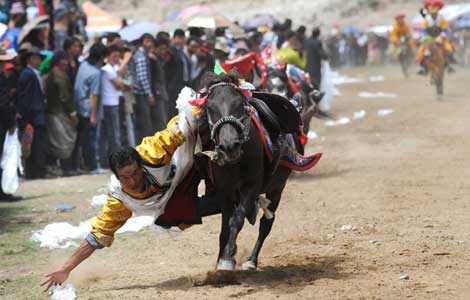
 Tibetan farmers enjoy Onkor festival
Tibetan farmers enjoy Onkor festival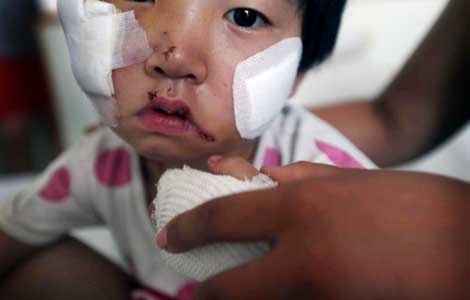
 Girl mauled by mastiff needs $32,580 for surgery
Girl mauled by mastiff needs $32,580 for surgery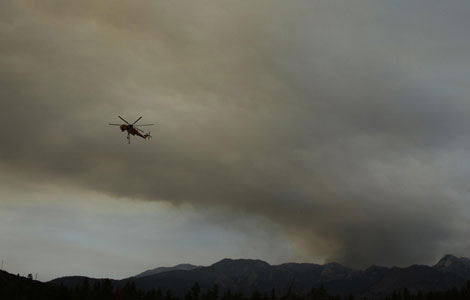
 Firefighters hold line against California wildfire
Firefighters hold line against California wildfire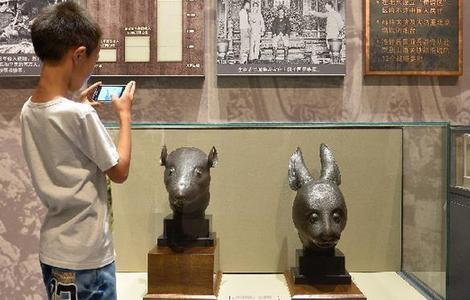
 Rat, rabbit head sculptures on display
Rat, rabbit head sculptures on display
Most Viewed
Editor's Picks

|

|

|

|

|

|
Today's Top News
Six detained over Chinese vendor's death
US court says reporter must testify in leak case
Venezuela VP defends support for Snowden
'Trayvon Martin could have been me': Obama
Asiana legal fallout begins after deadly crash
Floor on lending rates axed by PBOC
Huawei backs UK security review
Blacklist on way for court defiance
US Weekly

|

|







